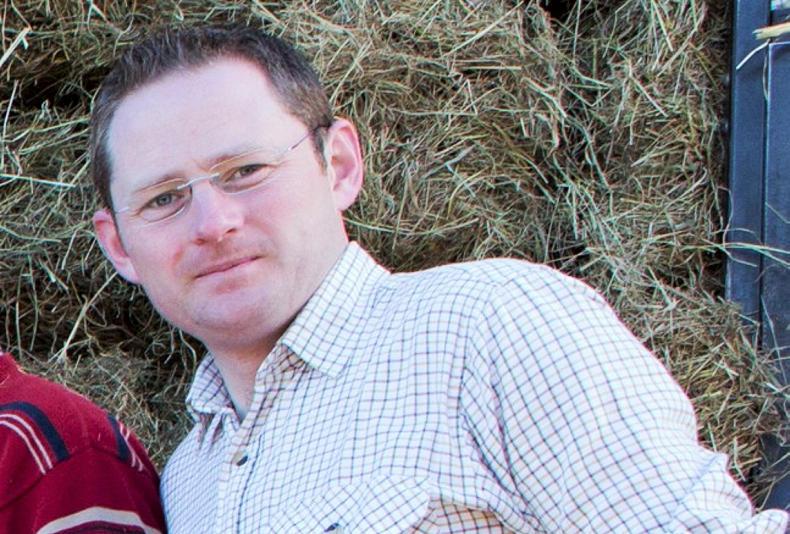The global crisis around COVID-19 has led to many unprecedented events, most recently the closure of all our schools and crèches. Although many people will be able to work remotely, others must continue to attend their place of work. Childcare has therefore become an additional challenge for many families. While many businesses may be closed down, farmyards remain very much open and fully operational, with lambing and calving in full swing. Alma Jordan, founder of the farm safety educational platform AgriKids, said: “Farming involves some high-risk activities and keeping our children safe and not exposing them to these risks is every bit as important as keeping them safe from COVID-19.”
The global crisis around COVID-19 has led to many unprecedented events, most recently the closure of all our schools and crèches. Although many people will be able to work remotely, others must continue to attend their place of work. Childcare has therefore become an additional challenge for many families. While many businesses may be closed down, farmyards remain very much open and fully operational, with lambing and calving in full swing.
Alma Jordan, founder of the farm safety educational platform AgriKids, said: “Farming involves some high-risk activities and keeping our children safe and not exposing them to these risks is every bit as important as keeping them safe from COVID-19.”
No child should be in the vicinity of a freshly calved cow or a cow during calving
Although many children, especially older children and teenagers, may be accustomed to the farm, the closures come at a time of year when children would generally be in school. Also, as the period of closure may be extended, there is a danger of complacency setting in.
Jordan said: “Freshly calved cows cause more livestock injuries on Irish farms than any other animal. If stressed, they can kick, charge or drop down unexpectedly. No child should be in the vicinity of a freshly calved cow or a cow during calving. If this is unavoidable, keep them at a safe distance with a barrier separating them. Use this time as an opportunity to explain what is happening, the dangers presented and what measures you are implementing to reduce the dangers.
“As with cows and heifers, lambing ewes can be equally agitated at this time. Although smaller, they can still be aggressive and act out of character. Do not allow children to enter a pen to pet or stroke a new lamb soon after birth.”
Machinery
Jordan is vociferous in relation to the regulations surrounding the use of machinery.
“No child under the age of 14 is permitted to operate agricultural machinery. Children aged 14 and over are permitted but only with a licence and formal training. Children do not have the competency skills or coping mechanisms to handle the scale of machinery on our farms today and should not be put into a situation where they are expected to do so.”
William Shortall, farm health and safety executive with the Irish Farmers’ Association agrees: “Children are only permitted on tractors above the age of seven and that is provided the tractor is fitted with a seat and seatbelt. Children under seven are not permitted to travel on tractors. Furthermore, children under 16 are not allowed travel or operate a quad bike on or off road.
“We are encouraging children to wear their brightly coloured cúl camp (GAA summer camps) tops when out on the farm.
“Kids getting struck by machinery is a particular risk. If you are wearing a bright colour you are 30 times more likely to be seen. If you have something reflective on, you are 300 times more likely to get noticed. Despite what people may believe, livestock react to motion not to colours,” Shortall said.
Educating children about safety on farms and permitting them to partake in safe and appropriate jobs should be encouraged. Some of the roles that they can do according to Jordan include:

IFA farm health and safety executive William Shortall. \ Donal O'Leary
Bucket feeding lambs and calves.Preparing feeds.Washing buckets.Keeping the area tidy and free from trip hazards.Sweeping and mucking out pens.Asking them to create a notice board with details on each lamb or calf to help with efficiency.Reminding them of the importance of handwashing for both COVID-19 and to prevent transmission of zoonotic disease.“This time of the year provides a great opportunity to show our children a vital aspect of farm life and enterprise. They learn about animal husbandry, welfare, empathy, basic vet skills and science. But we must also strike the balance between what is an acceptable and unacceptable level of risk,” Jordan said.
Read more
Five steps to reducing the risk of coronavirus
‘It’s important that farmers look out for each other’ - Cullinan
Watch: ‘if you don’t have to be at the mart, don’t be here'





SHARING OPTIONS: